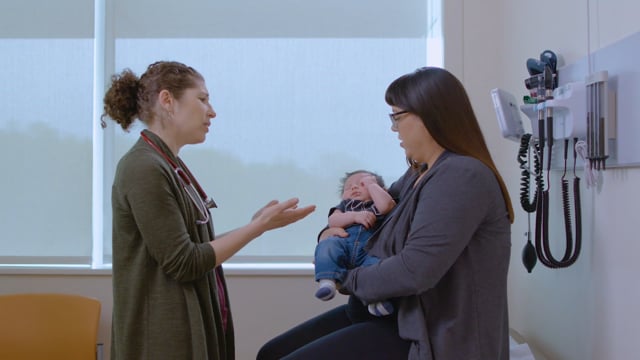Your Child's Vaccines: Pneumococcal Vaccines (PCV, PPSV)
The pneumococcal conjugate vaccines (PCV15, PCV20) and the pneumococcal polysaccharide vaccine (PPSV23) protect against pneumococcal infections.
The bacteria that cause these infections spread through person-to-person contact. They can lead to serious infections like pneumonia, blood infections, and bacterial meningitis.
The pneumococcal vaccines protect against the different types of pneumococcal bacteria that cause the most common and serious pneumococcal (new-muh-KOK-uhl) infections in kids and adults. The number at the end of each vaccine's name indicates how many types it protects against: PCV15 protects against 15 types, PCV20 protects against 20 types, and PPSV23 protects against 23 types.
When Are PCV and PPSV Vaccines Given?
Infants get PCV vaccines as a series of four shots:
- the first at 2 months of age
- then at 4 months, 6 months, and 12–15 months
Older kids and teens might need one or more shots of a PCV or PPSV23 vaccine if they missed getting the recommended shots when they were younger, or if they have certain chronic health conditions or a condition that weakens the immune system. The number of doses and the type of vaccines they get will depend on their age, their medical condition, and the type of vaccines they got in the past.
Why Are the PCV and PPSV Vaccines Recommended?
Children younger than 2 years old, adults over 65, and people with some medical conditions are at high risk for serious pneumococcal infections. These vaccines are very effective at preventing severe disease, hospitalization, and even death.
What Are the Possible Side Effects of PCV and PPSV Vaccines?
Kids may have redness, pain, or swelling where the shot was given. A child also might have a fever, headache, muscle aches, or tiredness after getting the shot. Young children who get PCV and a flu shot at the same time have a small risk of having a febrile seizure. As with any vaccine, there is a small risk of fainting, and a very small chance of an allergic reaction.
The pneumococcal vaccines contain only a small piece of the germ and so cannot cause pneumococcal disease.
When to Delay or Avoid PCV and PPSV Vaccines
Simple colds or other minor illnesses should not prevent vaccination, but your doctor might choose to reschedule the vaccine if your child has a more serious illness.
Talk to your doctor about whether the vaccine is a good idea if your child ever had a serious allergic reaction, or any allergic reaction after a previous dose of a pneumococcal vaccine or after a vaccine against diphtheria (such as DTaP).
Caring for Your Child After PCV and PPSV Vaccines
Check with your doctor to see if you can give either acetaminophen or ibuprofen for pain or fever and to find out the right dose.
A warm, damp cloth or a heating pad on the site of the shot may help reduce soreness, as can moving or using the arm or leg.
When Should I Call the Doctor?
Call the doctor if:
- You aren't sure if the vaccine should be postponed or avoided.
- There are problems after the vaccination.
-

How Vaccines Help
Vaccines keep millions of people healthy each year by preparing the body to fight illness. Learn how vaccines help and get answers to your biggest questions about vaccines.


